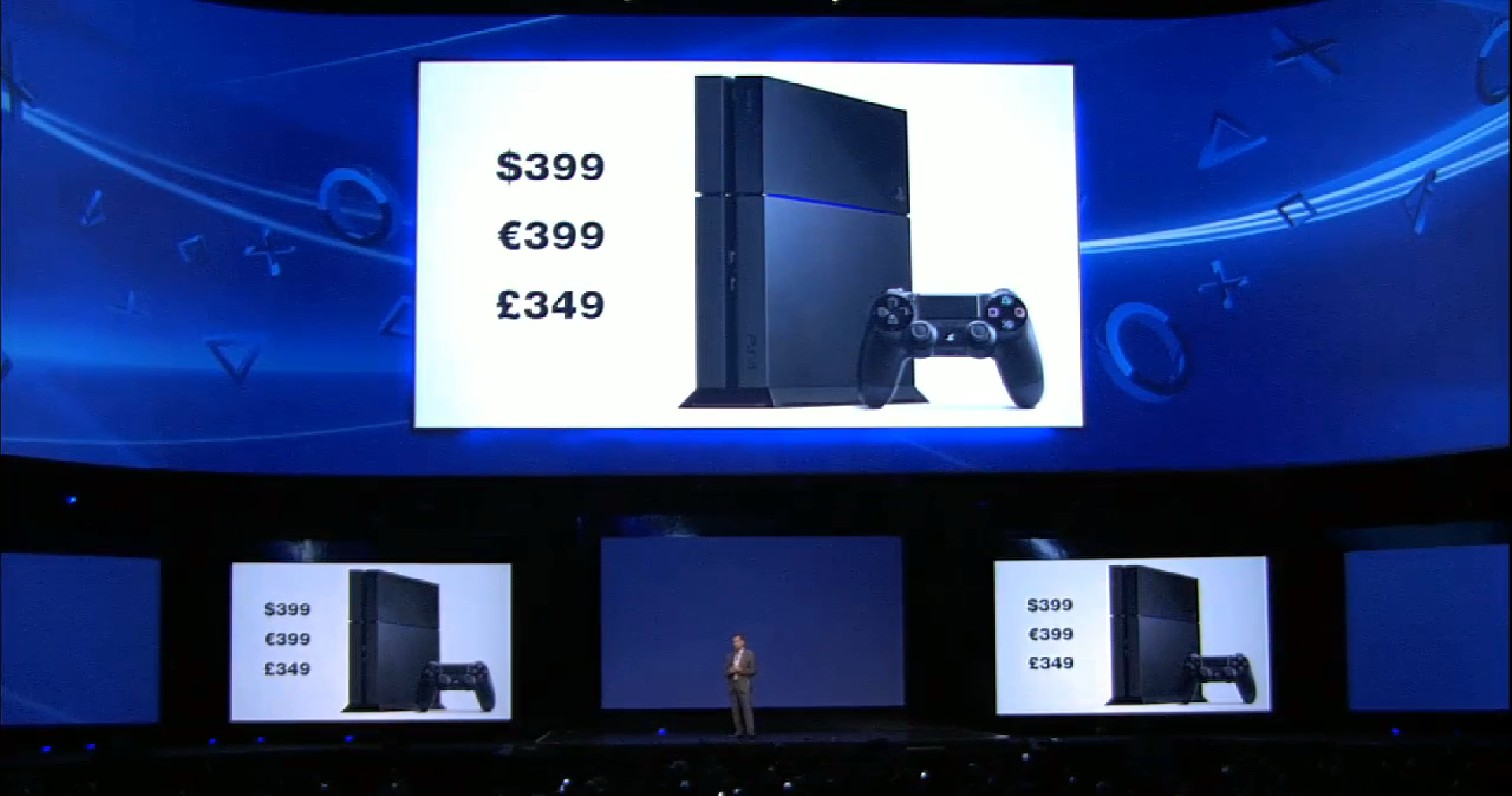Stay on top of all our E3 2013 coverage here.
Updated at 12:26 p.m. Pacific with comments from SCEA CEO Jack Tretton.
LOS ANGELES — Sometimes you can get ahead in life by standing perfectly still. That’s the story of Sony and Microsoft.
Today, both Microsoft and Sony presented their next-generation systems and games in media spectacles aimed at kicking off the Electronic Entertainment Expo (E3) trade show. Coming out of Sony’s PlayStation event, which closed out the day, it’s very hard not to feel that Sony just dealt a serious blow to Microsoft and Xbox One. What’s amazing is that Sony moved ahead (far ahead according to some fans) by letting Microsoft dig itself into a ditch.
Microsoft kicked off press-conference day as it promised it would — with games. The company showed off a number of titles for the Xbox One, including Ryse, Metal Gear Solid V, and Dead Rising 3. It was an impressive conference, but mitigating circumstances prevented it from landing the solid positive blow that Microsoft was hoping for.
Gamers are too preoccupied looking for answers to Microsoft’s used-games policy. On Friday, Microsoft released a major update that directly addresses how customers can “license” games.
Xbox One owners can lend games to people they’ve had on their friends list for 30 days. That means gamers can’t sell their old games on Craigslist or eBay — or at least not practically. Even if they could, each game can only transfer owners once outside of “participating retailers.” Microsoft will also have some family option that will let people access a common library of games if they are related to one another. The company also confirmed that games will stop working if the system doesn’t check in after 24 hours.
Microsoft’s answers left gamers with even more questions.
Meanwhile, Sony remained quiet. No one knew if Sony was with Microsoft on this or against it. The PlayStation company just let the angst build until it unleashed on Microsoft during its press briefing.
Sony Computer Entertainment chief executive Jack Tretton went point by point explaining all the ways that his company is different from Microsoft.
- PlayStation 4 can play used games.
- You can sell physical games to anyone.
- The system has no authentication.
“When gamers buy a disc, they have the right to use that disc,” Tretton said. “Your games won’t stop working if you don’t check in after 24 hours.”
The whole segment about used games was a direct jab at Microsoft, and gamers loved it.
But the thing is that Sony’s position on used games hasn’t changed. It is, as far as we can tell, exactly the same as it was on the PlayStation 3. Sony has made no improvements. In fact, it is now charging for multiplayer gaming — something it didn’t do on PlayStation 3 — which is actually a step backward.
But the biggest cheer of the night inside the Los Angeles Memorial Sports Arena, where Sony held the event, went to Tretton explaining that used games will work as you always expected they would.
This is evidence that gamers just want a company that gets what they want. Sony showed off a bunch of games. It promised a powerful system that will have big developers and indies making next-gen titles, and it won’t try to screw you on ownership.
Gamers are ready to reward them for that.
Sony is betting that the key to success is winning over the core audience. Microsoft has outsold every other home console for the last two years. It is betting that it will continue to see sales like that thanks to a wider market that doesn’t care about used games.
Here’s my worry: What if Microsoft is right?
What if — even after all of this — the wider audience that isn’t tapped into things like E3 heads out and picks up Xbox One over PlayStation 4? Well, Sony thought of that as well, and it twisted the knife with a $400 price point that undercuts Xbox One by $100.
Tretton later spoke with GameTrailers‘ Geoff Keighley (via GamerFront), and added more details about Sony’s DRM policies.
“We create the platform. We’ve certainly stated that with our first-party games we’re not going to be doing that. There’s going to be free-to-play — there’s going to be every potential business model on there, and again, that’s up to their [third-party publishers] relationship with the consumer … we’re not gonna dictate that,” said Tretton. “The DRM decision is going to be in the hands of the third parties.”
VentureBeat's mission is to be a digital town square for technical decision-makers to gain knowledge about transformative enterprise technology and transact. Learn More

